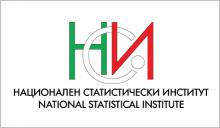The purpose of the training is to be shared Bulgarian statisticians’ experience in organizing and conducting surveys in the field of educational statistics, with a focus on Lifelong Learning and adult education and training.
The meeting was opened by Sergey Tsvetarsky - President of the National Statistical Institute, who welcomed the guests and briefly presented the NSI's vision for the establishment and development of the modern state statistics.
Experts from Demographic and Social Statistics Directorate, Education and Culture Statistics Department, presented to their Ukrainian colleagues Bulgaria's practice on the field of educational statistics, and in particular how to improve data collection in relation to the requirements of the European Commission and international statistical practice.
NSI’s surveys conducted under European regulations were examined in detail: ‘Adult Education Survey’ (AES), ‘Continuing Vocational Training Survey’ (CVTS), annually submitted data on the education and educational Systems (UOE) and mapping of national programs under the International Standard Classification of Education (ISCED 2011). The guests from Ukraine will also be acquainted with the experience of the Regional Statistical Office - Severoiztok in conducting surveys in the field of education at the regional level.
The visit to Ukrainian statistics continues a good tradition of exchanging experience between the National Statistical Institute and the State Statistics Service of Ukraine.
The visit is funded through the European Commission's TAIEX Community Implementation Instrument, which provides short-term technical assistance in the form of seminars, training visits and expert missions. TAIEX beneficiary countries are the candidate and potential candidate countries for EU membership and, since June 2006, Russia and The European Neighbourhood Policy countries (including Algeria, Armenia, Azerbaijan, Belarus, Egypt, Georgia, Israel, Jordan, Lebanon, Libya, Moldova, Morocco, Palestine, Syria, Tunisia and Ukraine).



